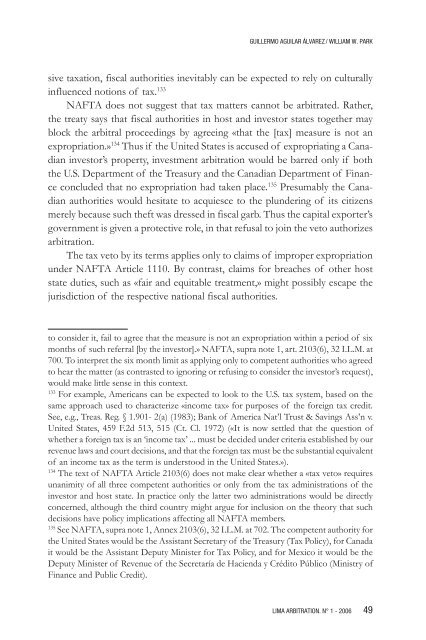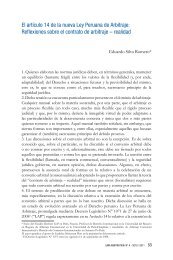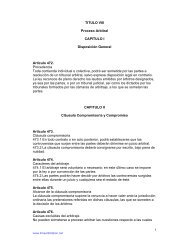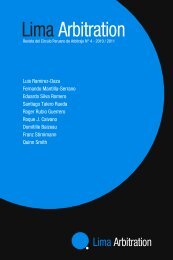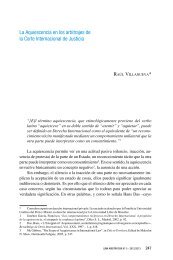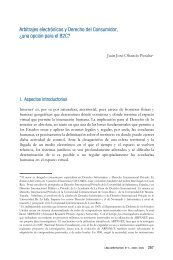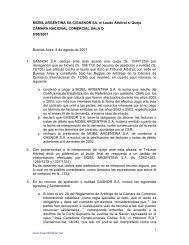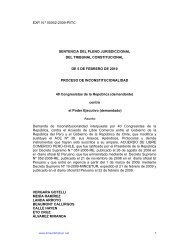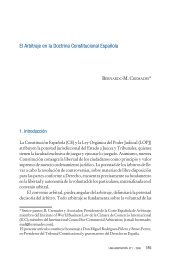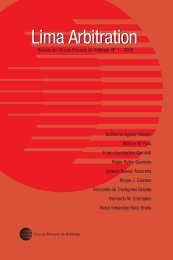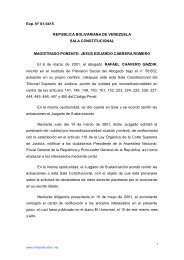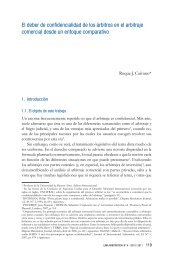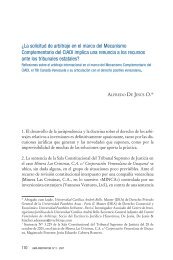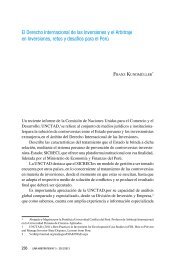Lima Arbitration
Lima Arbitration
Lima Arbitration
Create successful ePaper yourself
Turn your PDF publications into a flip-book with our unique Google optimized e-Paper software.
GUILLERMO AGUILAR ÁLVAREZ / WILLIAM W. PARK<br />
sive taxation, fiscal authorities inevitably can be expected to rely on culturally<br />
influenced notions of tax. 133<br />
NAFTA does not suggest that tax matters cannot be arbitrated. Rather,<br />
the treaty says that fiscal authorities in host and investor states together may<br />
block the arbitral proceedings by agreeing «that the [tax] measure is not an<br />
expropriation.» 134 Thus if the United States is accused of expropriating a Canadian<br />
investor’s property, investment arbitration would be barred only if both<br />
the U.S. Department of the Treasury and the Canadian Department of Finance<br />
concluded that no expropriation had taken place. 135 Presumably the Canadian<br />
authorities would hesitate to acquiesce to the plundering of its citizens<br />
merely because such theft was dressed in fiscal garb. Thus the capital exporter’s<br />
government is given a protective role, in that refusal to join the veto authorizes<br />
arbitration.<br />
The tax veto by its terms applies only to claims of improper expropriation<br />
under NAFTA Article 1110. By contrast, claims for breaches of other host<br />
state duties, such as «fair and equitable treatment,» might possibly escape the<br />
jurisdiction of the respective national fiscal authorities.<br />
to consider it, fail to agree that the measure is not an expropriation within a period of six<br />
months of such referral [by the investor].» NAFTA, supra note 1, art. 2103(6), 32 I.L.M. at<br />
700. To interpret the six month limit as applying only to competent authorities who agreed<br />
to hear the matter (as contrasted to ignoring or refusing to consider the investor’s request),<br />
would make little sense in this context.<br />
133<br />
For example, Americans can be expected to look to the U.S. tax system, based on the<br />
same approach used to characterize «income tax» for purposes of the foreign tax credit.<br />
See, e.g., Treas. Reg. § 1.901- 2(a) (1983); Bank of America Nat’l Trust & Savings Ass’n v.<br />
United States, 459 F.2d 513, 515 (Ct. Cl. 1972) («It is now settled that the question of<br />
whether a foreign tax is an ‘income tax’ ... must be decided under criteria established by our<br />
revenue laws and court decisions, and that the foreign tax must be the substantial equivalent<br />
of an income tax as the term is understood in the United States.»).<br />
134<br />
The text of NAFTA Article 2103(6) does not make clear whether a «tax veto» requires<br />
unanimity of all three competent authorities or only from the tax administrations of the<br />
investor and host state. In practice only the latter two administrations would be directly<br />
concerned, although the third country might argue for inclusion on the theory that such<br />
decisions have policy implications affecting all NAFTA members.<br />
135<br />
See NAFTA, supra note 1, Annex 2103(6), 32 I.L.M. at 702. The competent authority for<br />
the United States would be the Assistant Secretary of the Treasury (Tax Policy), for Canada<br />
it would be the Assistant Deputy Minister for Tax Policy, and for Mexico it would be the<br />
Deputy Minister of Revenue of the Secretaría de Hacienda y Crédito Público (Ministry of<br />
Finance and Public Credit).<br />
LIMA ARBITRATION. N° 1 - 2006 49


